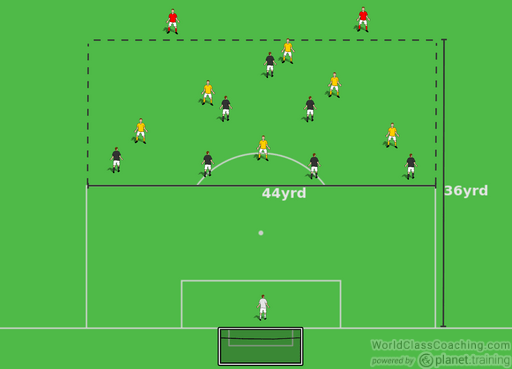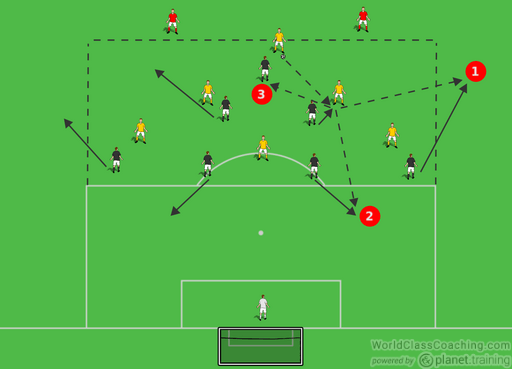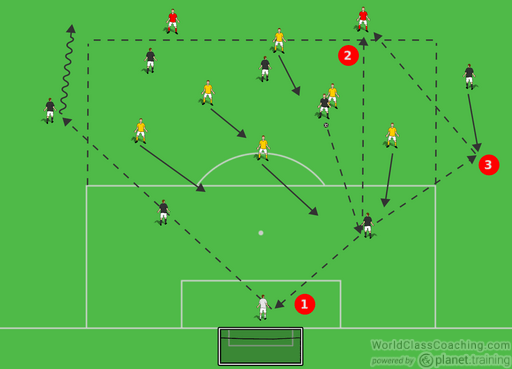By Sean Pearson
Area: 36 x 44 yards
Time: 20mins
Players: 8v6+2
Objective:
• To be compact while defending and then quickly spread out when possession is won
• To connect passes in a composed manner in a tight area in front of goal.
Set Up:
The playing area is twice the size of the 18-yard area with the defending team set up in a 4-2-3-1 without the wingers or striker. The attacking team is in a 4-3-3 formation without the defenders. There are two neutrals outside the area.

Execution:
When the attacking team start with the ball all players must stay in the boundaries of the 18-yard area. The defending team stays compact to stop penetration and frustrate the attacking team. When they win the ball, there needs to be instant transition to open up the field. The FB’s are allowed outside the area to stretch the field but no other players are. The CB’s should drop down and out to get into as much space as possible.
It is important that the player that wins the ball, because the team is in the defensive third, is careful with their pass selection.
1) Pass out wide to a FB
2) Pass down to a CB
3) Pass to another player who is open

The connection of these passes is critical not just of the first pass but until the team is able to play the ball forward to either the neutrals or up to the level of the neutrals while still in control of the ball. What you are trying to educate the players on is to move instantly for the player on the ball into areas where pressure can be released while remaining composed and not rushing the decision.
Encourage the attacking team to press when they lose the ball to simulate game speed and scenarios. It is then up to the team in possession to maintain their cool and play simple passes to release the pressure from their defensive third.
1) There should always be the option of playing back to the GK and because the FB’s are allowed outside the area the GK can switch the ball to the opposite side. The FB can then dribble up. Make sure the defensive line also pushes up to simulate the game.
2) The player on the ball can either find the neutral on the ground or clip the ball over the top of the pressing attackers.
3) If the pass has not gone to the FB straight away, the FB’s need to understand that they are an outlet and move again to be available for the team to play forward.
4
Variations:
• Allow all players to move outside of the width of the 18-yard area once the defending team wins possession
• Add the neutrals to the attacking team to play 8v8 and increase the difficulty of playing out
• Vary the formation of both teams and the starting point of where the attacking team starts
By Sean Pearson. Sean is also the author Coaching Team Shape in the 3-3-1, Coaching Team Shape in the 4-2-3-1 and Coaching Team Shape in the 4-3-3


